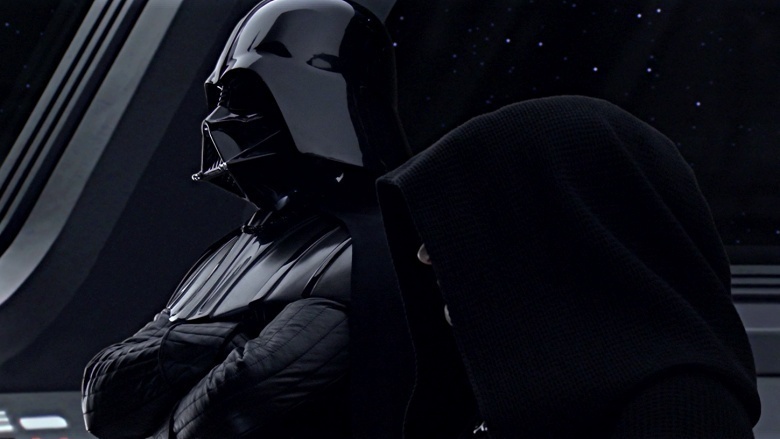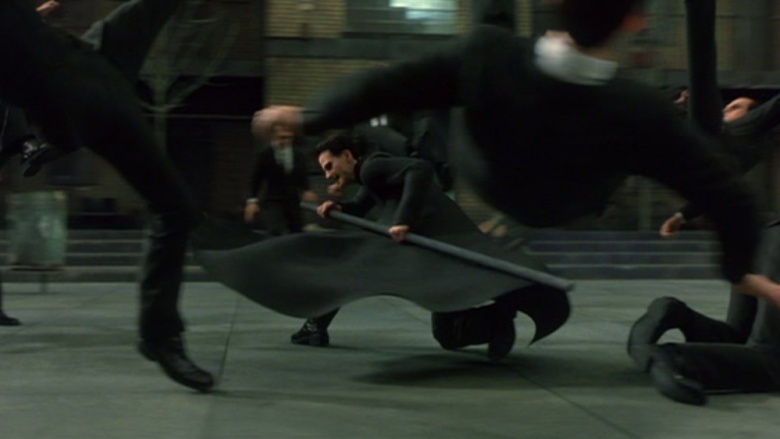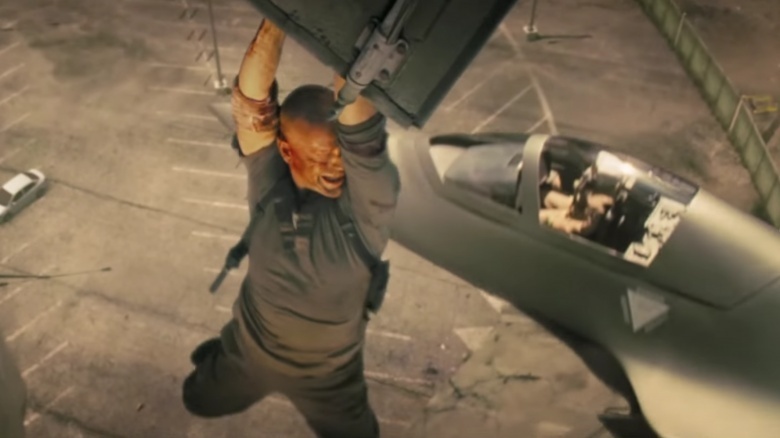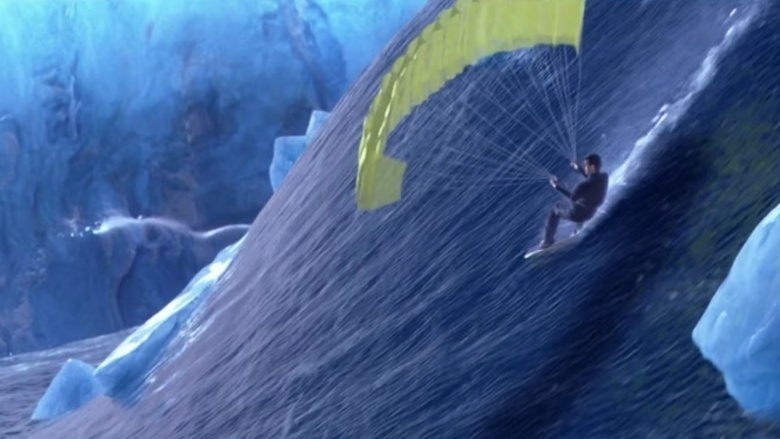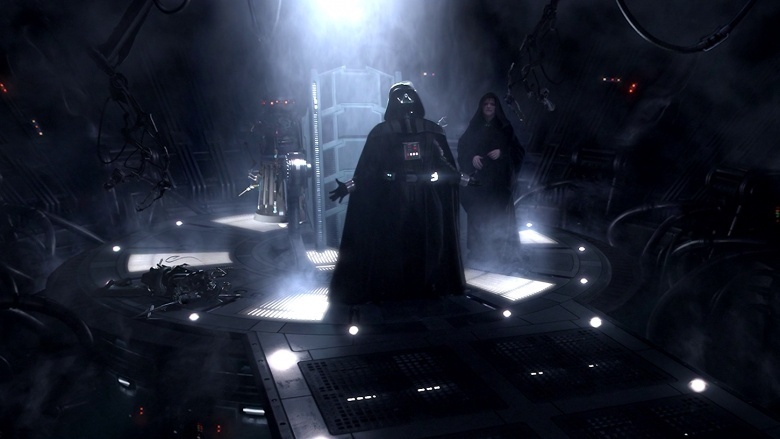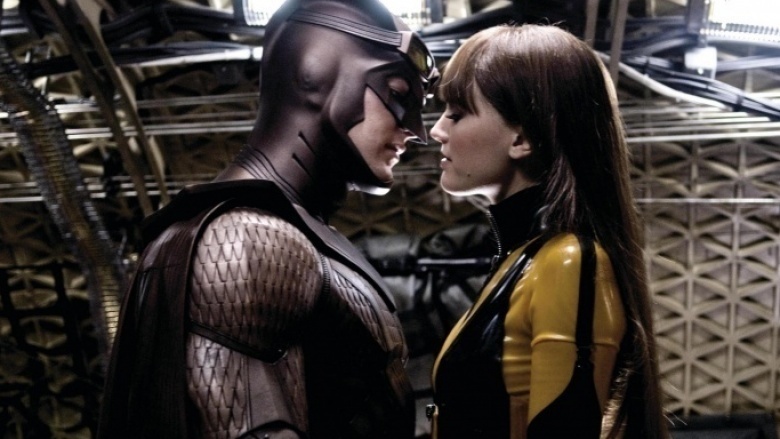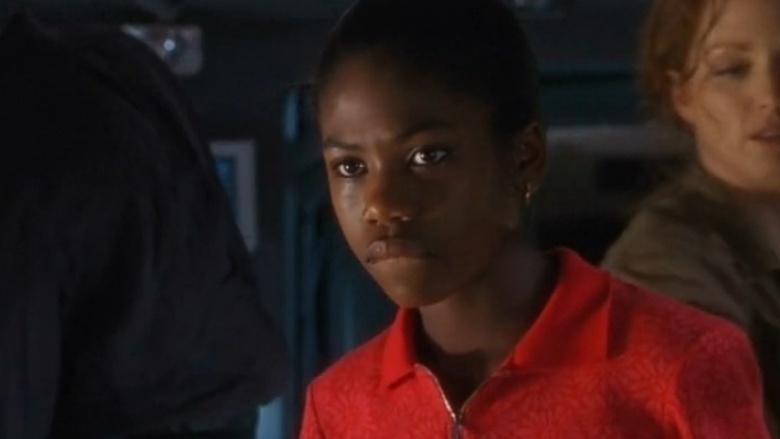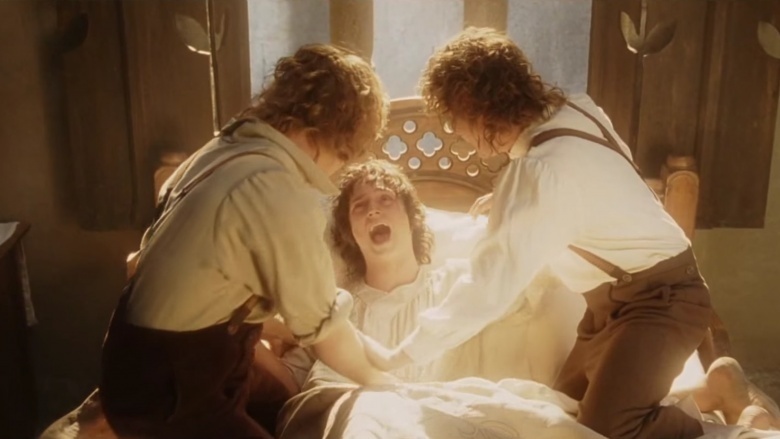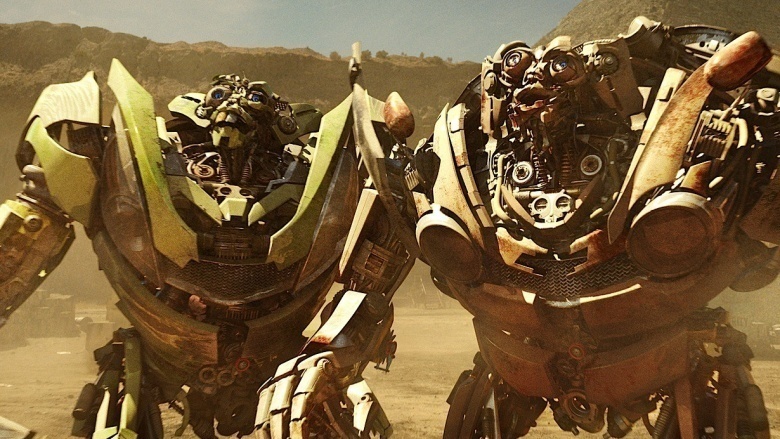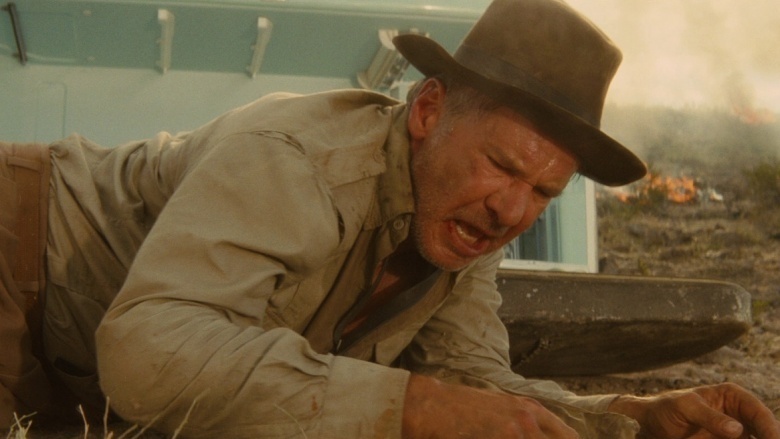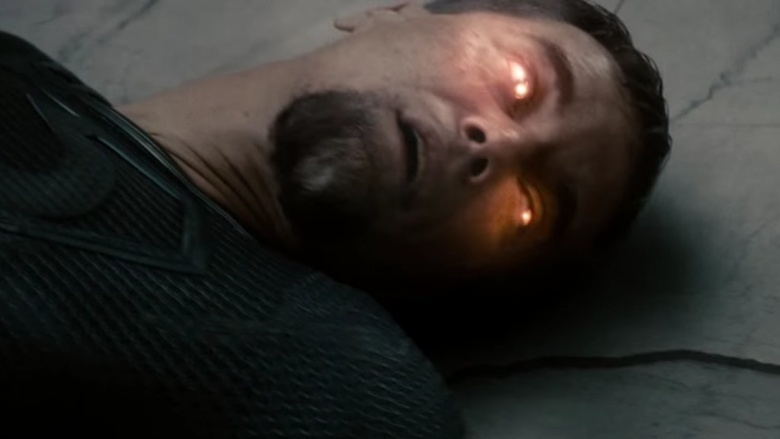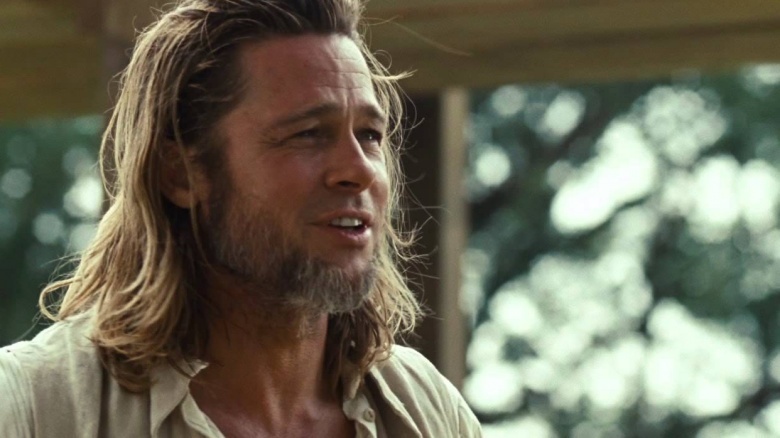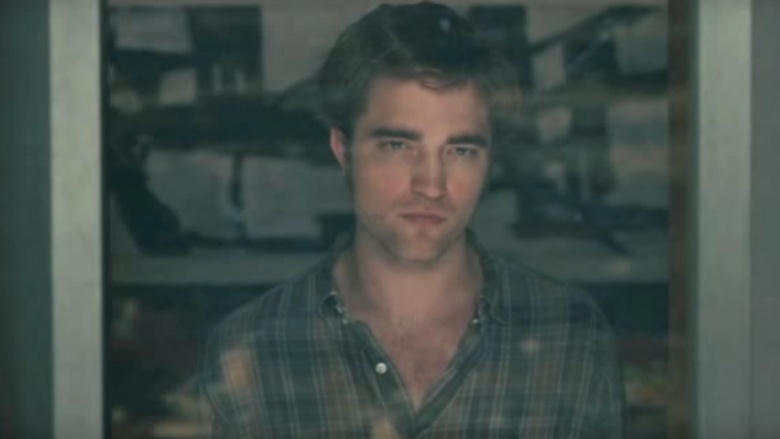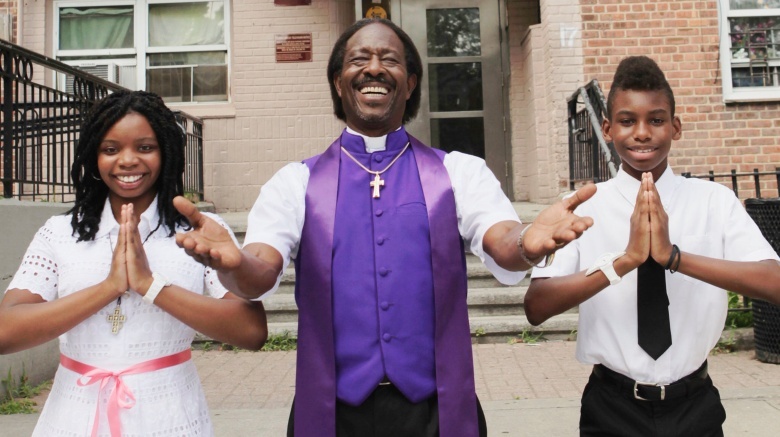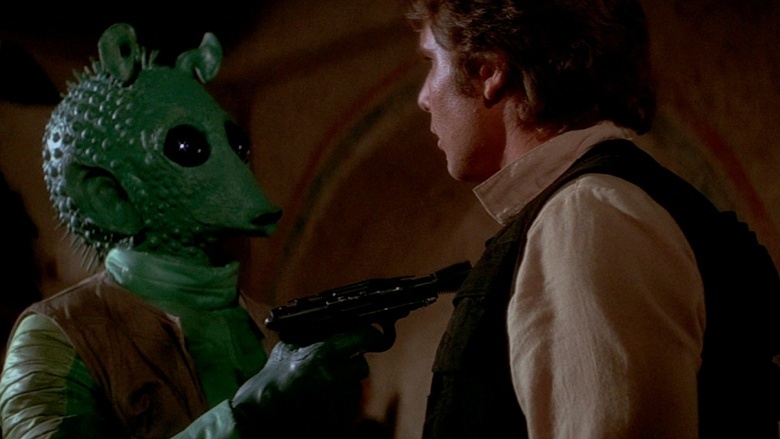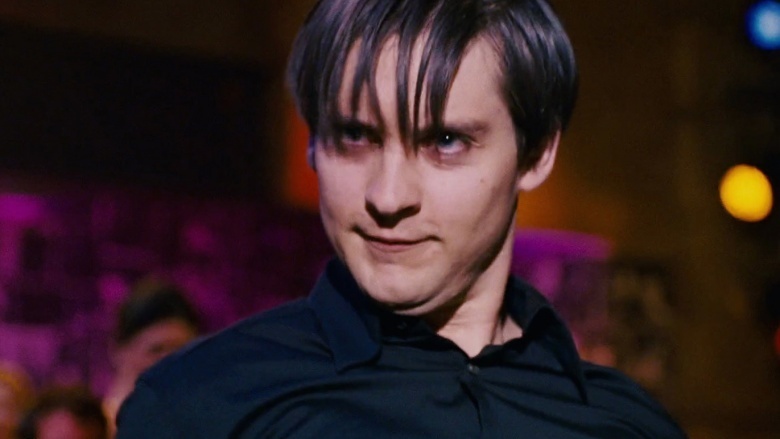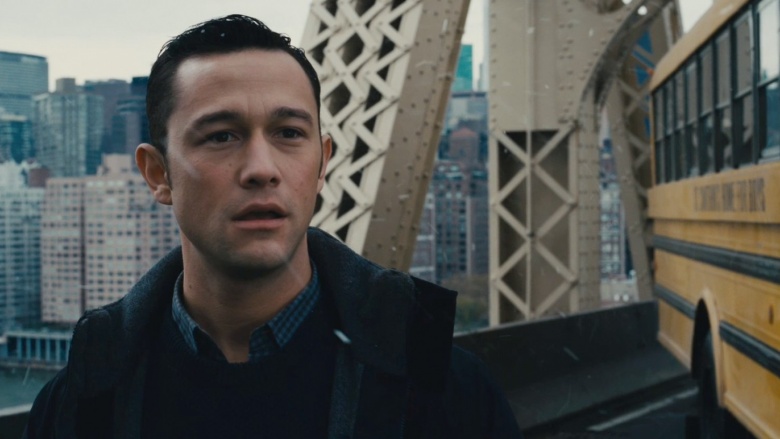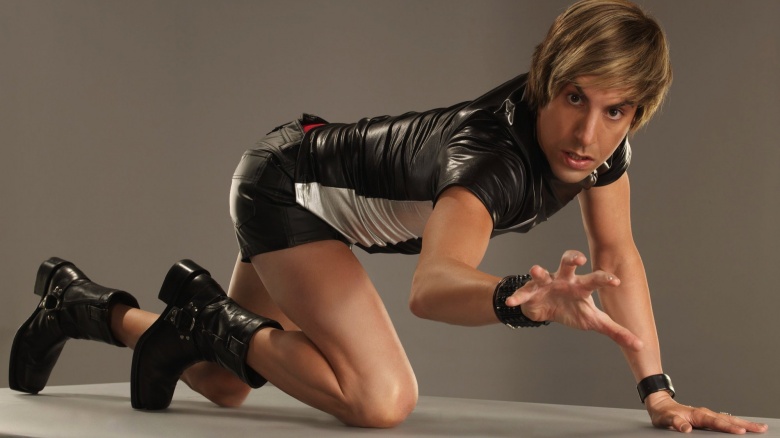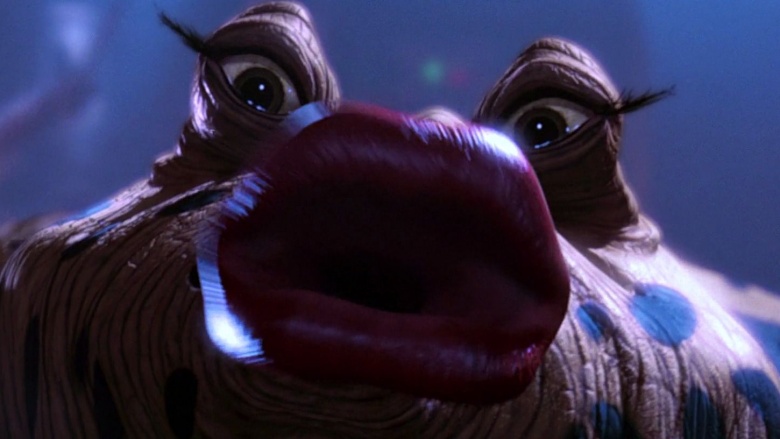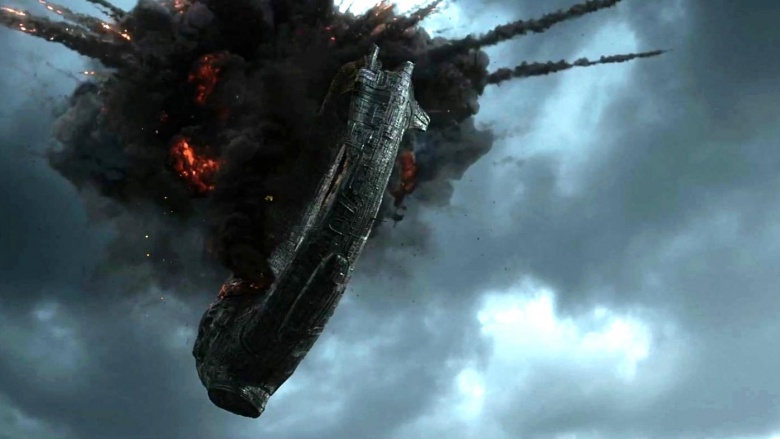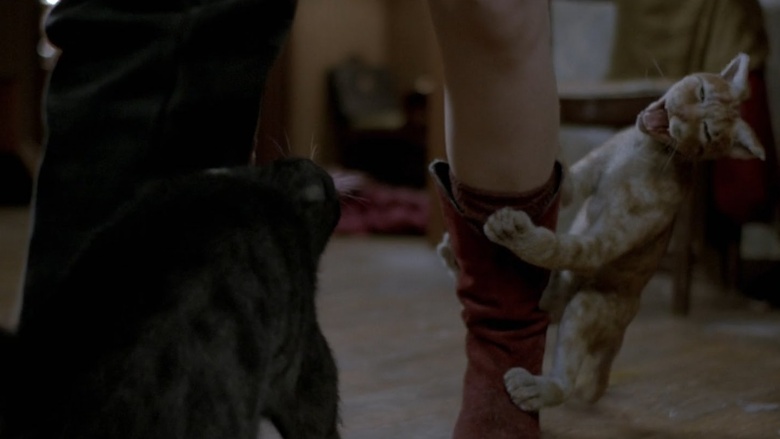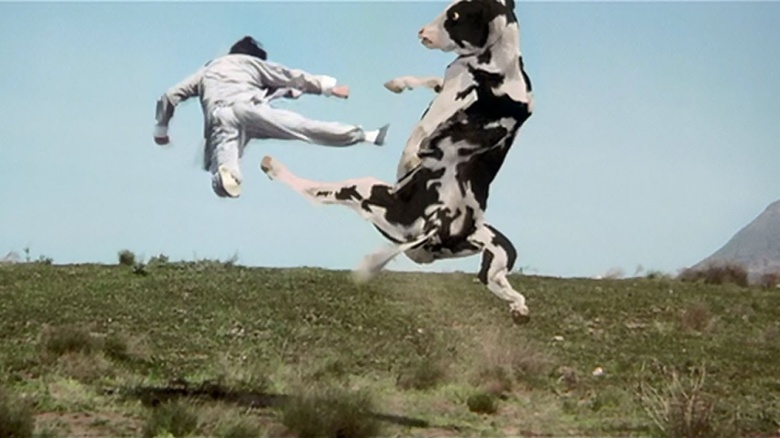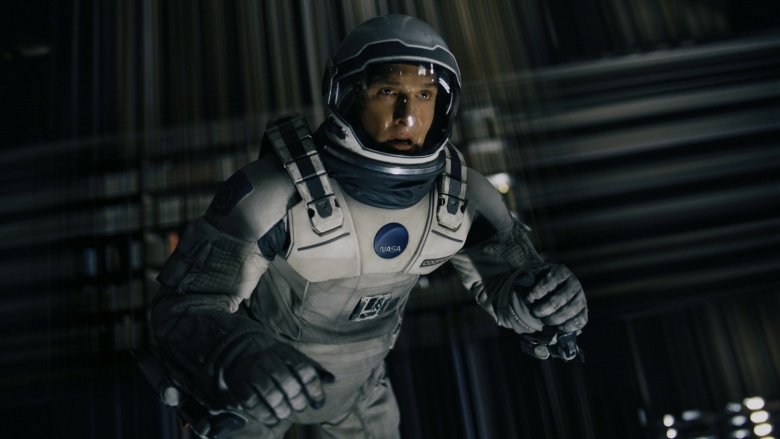Terrible Scenes That Nearly Destroyed The Entire Movie
There's no such thing as a perfect film. More often than not, there's some small scene that prevents a movie from achieving greatness...or, for some movies, even goodness. For some films, these scenes can be so bad that they actually tarnish the rest of the project as a whole. Some of these movies could've been saved if they'd left their lousy scenes on the cutting room floor, while others were already a lost cause. For them, these scenes are just the awful icing on the crappy cake.
The Matrix Reloaded - Neo vs. Smith
The scene where Neo fights a crapload of Agent Smiths was supposed to be one of the major action set pieces for The Matrix Reloaded. But the second the fighting begins, both Neo and Agent Smith get replaced with CGI so terrible it makes The Sims look like virtual reality. The scene was meant to follow up the groundbreaking "bullet-time" effects of the first movie. Instead, the botched effects proved to audiences that neither Matrix sequel would even come close to touching the original.
Live Free or Die Hard - McClane takes down an F-35
John McClane has done a lot of wildly unrealistic things in his accidental encounters with terrorists. But none have even come close to single-handedly fighting—and beating—an actual fighter jet. Live Free or Die Hard is far from the best movie of the series, but it was still pretty good even after being watered down from an R-rating to PG-13. That is, until the filmmakers just said, "eff it," and went to crazytown in this scene. There's the laughable ease with which a hacker takes command of the Marine jet, to the Rube Goldberg-esque way the highway perfectly falls apart to let McClane escape, the entire scene should've stayed in the imagination of the six-year-old who thought it up. Also, how is McClane able to drive a semi? You know what? Never mind. That's actually the least ridiculous thing here.
Die Another Day - James Bond surfs on a tidal wave
With the help of a parachute, a piece of a plane, and video effects that would embarrass a high school A/V club, James Bond surfs on what appears to be a hundred foot wave of arctic water in Die Another Day. This single scene has been cited as the death knell for Pierce Brosnan's Bond. It also sent the entire franchise back to the drawing board to reimagine the character. It took four years and the casting of Daniel Craig for the series to redeem itself from that time a James Bond movie looked like it was ripped from a PlayStation 2 video game cutscene. But we'll never forget. Your Bond died that day, Pierce. Make no mistake.
Star Wars: Episode 3 - Darth Vader disagrees
Of the many things that catch blame for "ruining" the Star Wars prequels—Jar Jar Binks, midi-chlorians, almost every line of dialogue George Lucas wrote for Padme and Anakin—there is one moment that makes almost every fan cringe, no matter how dedicated. We're talking about Anakin Skywalker's charred transformation into Darth Vader, literally the jumping-off point of the entire Star Wars saga.
In this moment, Vader learns he's lost his wife and unborn children...and has been transformed into, like, a Space Robocop. So, what does he do? He breaks free from his shackles and lets out the now infamous, "NOOOOOOO!" that felt like it had a Kanye-level of autotune to it.
It felt silly when it should have been tear-jerking, and it capped a performance by Hayden Christensen that was so unlikeable that he went from that guy poised to be this generation's Harrison Ford to the guy who was in that bank heist movie with Chris Brown and T.I.
Watchmen - Hallelujah
For the most part, Zack Snyder's Watchmen adaptation is incredibly faithful to the source material—to the point that watching the movie can begin to feel sort of pointless after a while. That's because large chunks of it are little more than live-action recreations of panels from the pages of the comic book. Snyder's so careful with the source material that when he does diverge, it's downright jarring, and nowhere is this more apparent than the interminable sex scene between Nite Owl and Silk Spectre. Like the rest of Watchmen, the sequence is directed within an inch of its life, sapping it of all the life this type of scene requires—but that isn't the biggest problem. What really makes it painful to watch is Snyder's bizarre decision to soundtrack the whole thing with Leonard Cohen's classic ballad "Hallelujah." It goes on like that for a long, long time. It's a wonderful song, but its presence here has kind of ruined it. Forever.
Jurassic Park: The Lost World - Velociraptor kick
If you ever found yourself being attacked by a velociraptor, you'd probably wet your pants and run away screaming. With that in mind, it's impossible not to lose total faith in Jurassic Park: The Lost World when Kelly Malcolm, the spunky daughter of Dr. Ian Malcolm, stands her ground against one of the lethal dinosaurs by putting her gymnastic training to the test. Watching a kid hold her own against one of the franchise's nastiest villains is undeniably cool, but the way she does it—hauling off and kicking the creature through a window—is entirely unbelievable. Sure, this is a movie about about dinosaurs being brought back to life. But dino-fighting-gymnastic skills are just a bridge too far.
Lord of the Rings: The Return of the King - Frolicking Hobbits
The Lord of the Rings trilogy's leisurely pace is part of its charm. When you watch one of these movies, you know you're settling in for a truly epic adventure. But even by those standards, the concluding chapter, The Return of the King, goes on for what seems like forever—especially in the final act, which seems to have, like, four or five endings. It's always hard to say goodbye to a great cinematic saga, so we can't begrudge director Peter Jackson his fond Frodo farewell. Except for the scene where the Hobbits frolic on top of a bed in gauzy light and slow motion. After spending all those hours with Frodo, Samwise, and the rest of the gang, we want to be laughing with them. Not at them.
Transformers: Revenge of the Fallen - Skids and Mudflap
Most people have never gone to a Transformers movie expecting a sensible plot or characters worth caring about. We line up for these things for awesome special effects, and director Michael Bay is more than happy to deliver. Unfortunately, Bay isn't always content to just blow stuff up. Sometimes he wants to be funny, too. And that's what led to the introduction of Skids and Mudflap in Revenge of the Fallen. Forget about robots in disguise: these two are racist caricatures out in the open, trading on every offensive stereotype in the book. Bay later tried to throw the voice actors under the bus by blaming the characters' demeanor on faulty line readings, but no one bought it. Skids and Mudflap were even cut from the next movie in the franchise, Dark of the Moon.
Indiana Jones and the Kingdom of the Crystal Skull - Nuking the fridge
By the time Indiana Jones and the Kingdom of the Crystal Skull arrived in 2008, we'd been waiting for a new Indy adventure for nearly 20 years. Almost nothing could've killed our buzz for getting to spend another two hours with our favorite archaeologist. In the end, while it's no one's favorite Indiana Jones movie, most folks were willing to forgive most of its flaws—except for the infamous "nuking the fridge" sequence. Even in a movie that asks us to suspend our disbelief far enough to accept Indy making contact with aliens, this awful action set piece—which finds Indy miraculously surviving a nuclear test blast by using a lead-lined refrigerator as shelter—is laughable, and ranks as one of the few true missteps in a beloved franchise.
Man of Steel - Zod's death
The first four Superman movies weren't all great films by any means, but they had a certain sweetness about them that reflected the character's optimism in the comics. All that changed when Zack Snyder took the reins for 2013's Man of Steel. Although darker overtones were probably to be expected in the post-Dark Knight world, it was still difficult for many longtime fans to accept the rampant, casual destruction Superman helped unleash during his battle with Zod in the final act. Even harder to accept was his decision to end the fight...by snapping Zod's neck. Snyder has defended his decision repeatedly, but that plot point remains the focus of intense debate. For some fans, it undermines the entire concept of the character.
12 Years a Slave - Brad Pitt's cameo
By the time Brad Pitt shows up in 12 Years a Slave, the story of Solomon Northup, a free man who was kidnapped and forced into slavery, has thus far been artfully told through brutal visuals and compelling performances. Then Brad Pitt speaks, using whatever that accent was supposed to be, with his Brad Pitt acting and his Brad Pitt face. Don't get us wrong, there's almost always a time and place for Brad Pitt, and it's usually bare knuckle boxing in a bar basement or some other gritty role, not serious period dramas about slavery. Pitt's presence, vital as his character is to the story, grinds the film to a halt and throws off its pacing. It was a weird casting choice that some chalked up to Pitt's involvement with the greenlighting of the film which if true would be as inappropriate as it was distracting.
Remember Me - Surprise, it's 9/11!
Endings are generally the most contentious part of any good movie discussion. Was it good? Did it give the audience the resolution or closure they were looking for? Was there a juicy twist? In the case of Remember Me, not only was there a twist, there was a roundhouse to the face in terms of "Wait, did they really just do that?" This melodrama starring Robert Pattinson compares to any other middle-of-the-road "two troubled young people fall in love in spite of emotional baggage" flick that begrudging boyfriends have been dragged to for years. Only this time around, Robert Pattinson's character dies at the end of the movie in the September 11 attacks, which the film uses as a plot twist where a drunk driver or mugging gone wrong could have absolutely sufficed. Of all the things that could be unnecessarily shoehorned into a movie as a plot twist, 9/11 is hands-down the most tasteless.
Red Hook Summer - An unwelcome plot twist
Spike Lee is one of the world's most respected directors. One of the things that makes him so exciting as a filmmaker is his willingness to take risks, even if they don't always pay off—knowing that just around the corner from a straightforward joint like Inside Man is the freaky, freaky vampirism of Da Sweet Blood of Jesus.
Red Hook Summer starts off fairly down to earth, in a mode common to Lee at this point—a story set on hot days in a vibrant New York neighborhood. In the vein of Lee joints like Clockers, Crooklyn, and Summer of Sam, it takes us to its titular locale, a Brooklyn borough at the beginning of a lazy, blazing summer. It's a good premise, a vibrant world. Which makes it all the more shocking when what seems to be a coming of age tale for a young man visiting his grandfather the neighborhood priest takes a screaming left turn into full-blown horror in its last half hour, revealing monstrous details about a major character right when you'd think we're about to wrap things up.
It's like the plot gets hit with an air-to-sea missile, and critics weren't pleased. Some readings are more charitable, but the point is that this film goes from what is essentially a light summer comedy to a dark-as-pitch meditation on forgiveness, sin, and possibly unforgivable acts. Let's be unambiguous: this movie is a downer. Go in not expecting that, and you'll probably feel a little sour when the truth comes out.
Star Wars Special Editions - Greedo shot first
1997 is a year that lives in infamy for Star Wars fans of a certain age—those old enough to remember the scrappy classics as they originally played, yet young enough to be excited to see the exciting updates 20 years of advances in filmmaking technology might bring to the viewing experience for the highly anticipated special editions of the original trilogy. It went...poorly.
From the release of the special edition of Star Wars on January 31, 1997, (now re-titled Episode IV: A New Hope), thousands of fan voices could be heard screaming in unison. Say it with us: Han shot first. This debate has raged for literal decades, so there's no reason to rehash it—just know that it started here, with creator George Lucas deciding to "clean up the confusion" over Han and Greedo's confrontation in the Mos Eisley cantina by adding "a little wider shot" in order to show Greedo firing first.
This was a change that, to fans' minds, actively ruined the original instead of improving it. We realized, to our horror, that the films hadn't been enhanced, but compromised. First, there's the sheer number of changes. These movies were finished! And we liked them! We don't like any of this. All these years later, it's still baffling how badly these releases were bungled. They're gross aberrations, and now all they do is complicate things. (Try tracking down the original trilogy, unaltered. It's not as easy as you'd think.)
Spider-Man 3 - Peter Parker dancing at the jazz club
To say that Peter Parker's dance scene ruined Spider-Man 3 is a bit of an exaggeration, since there's so much more wrong with the film. The misfired Sandman CGI, the underwhelming Venom, and James Franco's pie-eating performance all contributed to the flop that was Spider-Man 3. But all of that pales in comparison to Peter Parker dancing at the jazz club. Tobey Maguire's awkward hip-thrusting and finger-snapping as he gazes through his messy bangs play more like a bad SNL sketch than anything that ever should have made it into a superhero movie. "Now dig on this." How many people choked on their popcorn when he actually said that? Because seriously. That's awful.
The Dark Knight Rises - 'My legal name'
The Dark Knight Rises was unusually full of little head-scratching moments that threatened to drag down the whole experience if you spent more than five seconds thinking about them. Like, "how are these cops who have been trapped underground for months emerging fully groomed, well-nourished, and ready to fight?" "If the villain's plan is to blow up Gotham after holding it hostage, why does he wait all those months to do it?" "How did Batman get from the desert to the city after being trapped with no money and a broken back?" You see what we're getting at, the answer to all of these is a hearty shrug.
A good-but-not-great movie, TDKR chugs along at an even enough clip that it's easy to let these gripes slide into the background until you're well out into the parking lot. All these gripes except for one, at the very end, too big to ignore: the reveal of Joseph Gordon-Levitt's real identity. As the movie winds down, his character, the Gotham police officer John Blake, asks a clerk to search for some of his belongings under "my legal name," which is promptly revealed to be "Robin." Like, Robin. One might be inclined to think that this is a cute nod to the comics, but it isn't. The character of Robin, Batman's youthful sidekick, was never actually named Robin; his legal name was Dick. Or Jason. And Tim. And also Stephanie. This guy isn't anybody but a name-check; it's like he revealed that his real name was John Aquaman. Clunky and needless, it's a twist for the sake of having a twist, and doesn't even cast what came before in a new light.
Bruno - The focus group
A conceptual road trip across America post-9/11 in which people are poignantly beguiled into revealing their hidden prejudices, 2006's Borat is as generally beloved as a comedy movie can be, especially when taking into consideration its uniquely lengthy depictions of naked men locked in hand-to-hand combat. But where that movie was a fundamentally joyful jaunt, Bruno, its spiritual sequel, is just tiresome. Abrasive instead of charming, and aggressively antagonistic, Bruno is a considerably nastier, meaner movie than its predecessor, with a main character so unlikable that unscripted scenes of people losing their patience with him are uncomfortable instead of revealing. The wheels start to come off early on, when a focus group is made to watch a promo reel from the fame-obsessed protagonist, a "pilot" that's nothing but crotch shots, provocative insults, Dutch angles, and Eurotrash music. At the end, the camera flies into a man's urethra, while the focus group gawks. Over-the-top and not the least bit clever, this is the point where it becomes clear that "look at how funny this isn't" is the only thing you'll think the rest of the movie.
Return of the Jedi Special Edition - Jedi Rocks
The 1997 Star Wars special editions are well-worn targets of nerd rage, but the rage is just so righteous that it's hard to let it go. It's never been just the number of changes between the originals and the special editions that rankles moviegoers—rather, it's about how bizarre so many of those changes turned out to be. The "Jedi Rocks" musical number, an augmentation to the film's tense beginning rescue sequence in Jabba's palace, is so dumb, so grating, and so embarrassing that it begs to be seen for itself. It's a literal showstopping number in the middle of a sequence that really didn't need it, and just another example of how wall-to-wall and puzzling the special edition changes really were. Greedo shooting first betrayed a character; whatever the hell this is betrays logic.
Prometheus - Get out of the way
There was a minute there where it looked like Ridley Scott's Prometheus was going to be one of the dopest movies ever made. The gorgeous visuals. That kickass trailer. The killer cast, and all of the potential contained within the boundless unknowable mysteries of space. But what it turned out to be was a slow exercise in cluelessness so vague and muddled that we sometimes forget Idris Elba was even in this thing. Everything starts more-or-less promisingly, but it's a promise that gets squandered as enticing plot threads dissipate into nothing and characters contradict themselves into knots throughout the runtime of the movie.
This all culminates in an almost-thrilling crash sequence, where a titanic monstrosity of a circle-shaped spaceship plummets out of the sky, hits the ground, and begins slowly rolling toward the heroes. Can they get out of the way in time? Well ... yes, it certainly seems so. Which makes their decision to dash in the same direction as the spaceship, trying to outrun it, resulting in death, absurdly maddening even in the moment. It's hardly the first unconscionably stupid decision the characters in the movie make; it's actually more of a culmination of stupid decisions, a last straw, the scene in the film where all benefit of the doubt flies out the window and you start rooting against the characters. Prometheus is a frustrating watch, a movie so well-made in some ways that it gets away with quite a bit, up until this point, which is just about when you have to throw your hands up and say "this sucks."
Let the Right One In - Cats attack
Let the Right One In is a rare kind of horror movie, a haunting character study with few loud moments or overt scares. It's an examination of the innocent relationship between a young boy and an ageless vampire, and for the majority of the movie, what violence there is to see is relatively quiet and restrained. Which makes one brief side story into well-worn vampire lore all the stranger. A woman, unwittingly turned from human to vampire, is viciously attacked by a mob of house cats in a bit of madcap, computer-generated bedlam. More ridiculous than chilling, the scene is made worse by wonky CGI, taking you out of the subplot right when you should be the most invested. You're supposed to be worried about this woman's mortal soul; instead, you can't stop laughing at how far across the room she flings these felines.
Kung Pow: Enter the Fist - Cow fight
As far as completely stupid genre parodies go, Kung Pow is a pretty entertaining watch. Taking a lo-fi approach in the vein of a redubbed kung fu movie, there's some goofy fun to be had here that would be easy to recommend except for one painful, excruciating, budget-blowing centerpiece, a fight against a cow. Tiresome even at the time of release, it's an excruciating scene to sit through now, completely at odds with the relatively dialogue-heavy, Mystery Science Theater-esque charm of the rest of the narrative. The addition of a self-consciously cool Matrix-style bullet time reference (which was, again, tired even at the time) conveyed with shabby CGI puts this garbage sequence over the top and single-handedly makes the movie way, way worse than it needs to be.
Interstellar - The power of love
Christopher Nolan's Interstellar drew a lot of comparisons, at the time of release, to the landmark sci-fi Stanley Kubrick picture 2001: A Space Odyssey. In retrospect, inviting these comparisons was probably a little unwise. Since 2001 ended with a wildly impressionistic, wordless, psychedelic trip with visuals unlike anything ever before realized on film, the fact that Interstellar's ending is more of a hippy-dippy mouth fart is something of an accomplishment. Falling into a black hole, Matthew McConaughey's pilot character lands inside a far-flung future device placing him at the boundary of all space and time, letting him send messages into the past and across unfathomable space to save the future. The realization that we've come this far and sacrificed so much only to find that the salvation of humanity depends on some Morse code, time-displaced wizard crap is ... deflating.
People are free to debate whether or not the ending is a bad idea, but the execution leaves you scratching your head when you should be feeling emotionally overwhelmed. It's safe to say that the intended reaction to all of this wasn't "Huh?" But that's exactly how the sequence lands, and the mess it leaves diminishes the movie as a whole, making the conditions of victory confusing and unsatisfying. Initial confusion aside, what actually happens within the scene is narratively unsatisfying. Humans of the unfathomably far future left a time machine inside this black hole so Matthew McConaughey could send vibrations across space and time to his daughter's bookshelf in Kansas to remind her that hey, she's a smart girl, she can figure all this out herself? All right, all right, all right.
